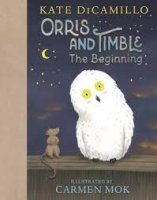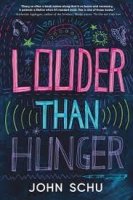"Saturday night I was downtown, Working for the FBI." -- A. Clarke, R. Cook, R. Greenaway, "Long Cool Woman in a Black Dress" "FBI agents mastered the art of the 'black-bag job,' which meant breaking into the office of a person or organization to plant a microphone or to rifle through notebooks, diaries, and calendars. These undercover actions violated the Fourth Amendment to the Constitution, which protects against 'unreasonable searches.' As a result, they were recorded into a file titled Do Not File. That way, if an inquisitive outsider asked for damaging files, they would not exist. How could investigators ask for something they had no way of knowing about? Some illegal acts were described in files that were destroyed every six months, but an 'executive summary' of the now-missing files was kept separately, in a Confidential File. There was even a third level of file: the Personal and Confidential files that Hoover's loyal secretary hurried to shred just after he died." After reading MASTER OF DECEIT, I realize that J. Edgar Hoover was every bit as bad as I'd always imagined he was in terms of skirting laws, ignoring Americans' constitutional rights, and operating a powerful, unchecked network. And yet, I also realize now that Hoover was, in large part, as right as he always imagined he was about the threat to America posed by Communism, including from some American-born Communists. It was a threat far more serious than I'd ever understood. Being that Aronson makes the connection between, on one hand, the widespread fear of Communism and Hoover's actions a half-century ago and, on the other hand, today's widespread fear of Muslims, along with related national security decisions that need to be made, the revelations in this book will give pause to some of those who (like me) reflexively brush off fears of Muslims as being patently wrong-headed and xenophobic. In preparing to read a book about the guy who essentially created the FBI and then ran it from the days of my mother's toddlerhood in the Roaring Twenties until the Nixonian days when I was in high school, I had no idea that, in addition to Hoover, I would learn far more from this amazing read than I ever knew before about such diverse people, places, and things as Josef Stalin, Walter Winchell, The Stork Club, John Dillinger, Margaret Chase Smith, and the movie Spartacus. In the process of learning all of this great twentieth century American history, I sometimes learned some bad stuff about some good guys and some good stuff about some bad guys. I am also blown away by the information literacy lessons that are central to Aronson's essay in the back matter, "How I Researched and Wrote This Book:" "...As you can see, the field of researching and writing about Hoover and the Cold War is constantly shifting and changing. That makes for an exciting opportunity: take a small selection of books from different periods, line them up, and see how they treat similar events. That offers a quick, and powerful, lesson in the fact that who we are and the interests before us today influence what we see in the past. This does not mean the past is entirely invented and up to us to shape as we like. To be a historian, you must be fair to the evidence, willing to be proven wrong, and open to criticism. We may come to different conclusions, but we have to play by the same rules." In the essay, Aronson goes on to recount how, after all the necessary work of gaining more general knowledge of his subjects was complete, his subsequent mining of primary source materials led him to the kind of "aha!" moment that we all hope students will come to experience in their research assignments. J. Edgar Hoover was quite a character and, in many ways, quite a mystery. Like all of us, he had issues to deal with that he brought to his decision-making from his childhood and adolescence. For most of us, it is only the people around us in our daily lives who get stuck dealing with our "stuff." But, as we see all to clearly in MASTER OF DECEIT, when someone like Hoover (or some dictator du jour) is handed (or usurps) a ridiculous amount of power -- when the checks and balances and protections written into a constitution are subverted in the name of law and order and keeping us safe -- then we are all dealing with that one person's "stuff" and we are all less safe for it. This is a truly notable read. Recommended by: Richie Partington, MLIS, California USA See more of Richie's recommended books: Richie's Picks https://richiespicks.com
- Non-Fiction
- Master Of Deceit: J. Edgar Hoover and America in the Age of Lies
Master Of Deceit: J. Edgar Hoover and America in the Age of Lies
Published |
Updated
Book Information
Reading Level
Reader Personality Type
Author
Publisher
Candlewick April 2012
Keywords
Country
Curriculum
Social Studies Curriculum
User reviews
Have you read this book? We'd love to hear what you think. Click the button below to write your own review!
Already have an account? Log in now or Create an account






